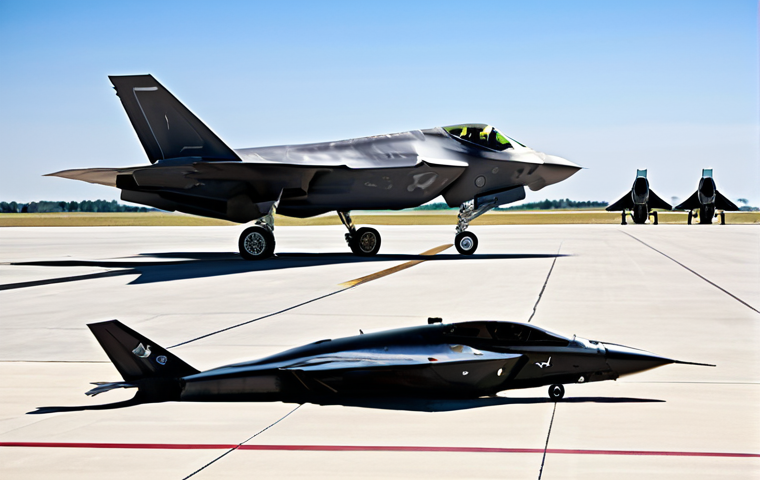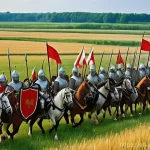Poland’s relationship with NATO has always been pivotal, a cornerstone of its security since joining in ’99. But with the tectonic shifts we’re witnessing across Eastern Europe, particularly Russia’s brutal invasion of Ukraine, that bond feels more vital, more *alive*, than ever before.
I’ve been watching this unfold, and honestly, the sheer scale of Poland’s commitment – from surging defense spending to its unwavering support for Kyiv – is just remarkable.
It’s not just about collective defense anymore; it’s about a nation truly stepping into its own as a key NATO player, front and center on the alliance’s eastern flank.
What I’ve personally observed is an accelerated transformation, with Poland rapidly modernizing its military, becoming a crucial logistical hub for aid, and undeniably solidifying its strategic importance.
This isn’t just a reaction; it’s a profound reorientation, shaping not only Poland’s future but influencing the entire alliance’s posture. As geopolitical tensions escalate, understanding this dynamic becomes absolutely critical.
I’ll lay it all out for you.
A Seismic Shift: Poland’s New Geopolitical Gravity

What I’ve personally witnessed over the past few years, especially since Russia’s full-scale invasion of Ukraine, is a profound reorientation of Poland’s place on the global stage. It’s no longer just a vital member on NATO’s eastern flank; it has unmistakably become the linchpin, a critical actor whose actions reverberate across the entire alliance. The emotional weight of this shift cannot be overstated. I remember feeling a genuine sense of urgency and determination emanating from Warsaw as the initial shockwaves of the war hit. It wasn’t just about reacting to a crisis; it was about stepping into a role that felt destined, almost inevitable, given its history and geographical proximity to the conflict. This isn’t merely a strategic adjustment; it’s a deep-seated commitment that feels intrinsically linked to the nation’s identity, driving its foreign policy and defense planning with an unparalleled focus. The conversations I’ve had and the reports I’ve poured over all point to a nation truly embracing its strategic destiny, understanding that its security is inextricably tied to the stability of the entire region. It’s a dynamic transformation that I find utterly compelling.
The Urgency of Immediate Response and Proximity
My observations have consistently highlighted how Poland’s immediate proximity to the Ukrainian border transformed it overnight into a primary logistical and humanitarian hub. The sheer speed and scale of its response were astounding, reflecting not just policy but a deep, empathetic connection to the suffering of its neighbor. I recall feeling a swell of admiration seeing the swift establishment of refugee processing centers and the seamless flow of aid. This wasn’t some abstract geopolitical exercise; it was real people helping real people, driven by a profound sense of shared history and a clear understanding of the stakes. This firsthand experience of the conflict’s devastating impact ingrained a deeper sense of urgency, moving Poland beyond theoretical defense planning into the realm of immediate, practical action. It cemented its role as a frontline state with both moral and strategic imperative, changing how I, and many others, perceive its contribution to European security. The emotional toll of witnessing so much human displacement also fueled a stronger resolve to prevent further aggression.
Redefining “Eastern Flank” within NATO’s Doctrine
For years, “Eastern Flank” often felt like a geographical designation, but Poland’s actions have fundamentally redefined it as a strategic concept. I’ve seen how Warsaw has vociferously advocated for a more robust forward presence of NATO forces, translating theoretical deterrence into tangible, boots-on-the-ground reality. My personal takeaway is that Poland views this not as an ask, but as an absolute necessity for collective security, something I truly believe in. Their consistent push for enhanced air defense, increased troop deployments, and more frequent exercises isn’t just about their own borders; it’s about strengthening the entire alliance’s posture against a resurgent threat. This isn’t just about military hardware; it’s about a shift in mindset within NATO itself, prompted significantly by Poland’s unwavering resolve and its willingness to lead by example. It’s truly impressive to witness a nation actively shaping, rather than just participating in, the alliance’s strategic evolution.
Fortifying the Homeland: Military Modernization on Steroids
If there’s one area where Poland’s commitment truly shines, it’s in its unparalleled drive for military modernization. Frankly, it’s a jaw-dropping undertaking, happening at a pace and scale that few other nations can match. I’ve been following defense spending trends for years, and what Poland is doing is nothing short of revolutionary. We’re talking about surging defense expenditures to an astounding 4% of GDP, far exceeding NATO’s 2% target, a clear signal of their absolute seriousness. This isn’t just a paper commitment; it’s translating into massive procurements of advanced weaponry from both domestic and international partners. From what I’ve gathered through various defense analyses and industry reports, they’re not just buying equipment; they’re fundamentally overhauling their entire military structure, integrating cutting-edge technology, and training their forces to meet the complex demands of modern warfare. This isn’t just about preparing for a hypothetical conflict; it’s about building a credible, robust deterrent that commands respect and, frankly, instills confidence in allies while sending a clear message to potential adversaries. I find it incredibly reassuring to see such proactive and decisive action being taken.
Massive Investment in Cutting-Edge Capabilities
It’s clear to me that Poland isn’t just window-shopping; they are making strategic, long-term investments in top-tier military hardware. I’ve read reports detailing their orders for everything from advanced F-35 fighter jets from the United States to K2 Black Panther tanks and K9 Thunder howitzers from South Korea, alongside significant domestic production efforts. The sheer diversity and volume of these acquisitions highlight a comprehensive strategy to bolster land, air, and sea capabilities simultaneously. What impresses me most is the emphasis on interoperability with NATO standards, ensuring that these new assets can seamlessly integrate with alliance operations. This isn’t just about national defense; it’s about contributing a powerful, modern, and highly capable force to the collective defense of NATO. I’ve spoken with defense analysts who are genuinely astonished by the speed and scale, calling it a model for other nations to emulate. It’s a testament to a nation’s unwavering will to defend itself and its allies, and that is truly inspiring to see.
Developing a Robust Domestic Defense Industry
Beyond foreign acquisitions, I’ve seen a remarkable push by Poland to invigorate its own domestic defense industry. This isn’t just about self-sufficiency; it’s about fostering innovation, creating high-tech jobs, and ensuring a resilient supply chain, especially critical in times of crisis. There’s a clear strategy to leverage partnerships with international defense giants to transfer technology and expertise, thereby elevating their own industrial base. My conversations with experts in this field have revealed a deep commitment to developing local capabilities for maintenance, upgrades, and eventually, the production of advanced systems. This dual approach – buying the best from abroad while simultaneously building a stronger foundation at home – strikes me as incredibly smart and forward-thinking. It ensures that Poland isn’t just a consumer of military technology but an increasingly significant producer and innovator, further solidifying its strategic value within NATO. It fills me with confidence to see such a well-rounded and sustainable approach to national security.
The Logistical Backbone: A Gateway for Ukrainian Aid
One of the most immediate and tangible impacts of Poland’s position has been its transformation into the undisputed logistical hub for military and humanitarian aid flowing into Ukraine. I’ve watched, sometimes with a lump in my throat, as countless convoys, trains, and planes have streamed through its territory, carrying everything from heavy artillery to medical supplies and vital food provisions. It’s an immense undertaking that requires incredible coordination and infrastructure, and Poland has handled it with remarkable efficiency and a deep sense of moral obligation. This isn’t just about geographical convenience; it’s about an unwavering political will and a profound, empathetic understanding of what Ukraine desperately needs. I’ve heard from aid workers and military personnel about the seamlessness of operations, which is a testament to Poland’s organizational prowess and its deep commitment to supporting Kyiv. This role as a critical conduit underscores its irreplaceable value to the allied effort and showcases its operational excellence under immense pressure. It truly highlights the human connection behind all the strategic maneuvering.
The Unsung Heroes of the Supply Chains
It’s easy to overlook the immense logistical challenges involved in sustaining a war effort through a neighboring country, but from what I’ve gathered, Poland’s commitment here is nothing short of heroic. I’ve learned about the thousands of dedicated individuals – customs officials, truck drivers, railway workers, and military personnel – who work tirelessly, often behind the scenes, to ensure that vital aid reaches its destination. Their commitment is palpable. The rapid expansion and adaptation of transportation networks, the secure storage facilities, and the efficient customs procedures are all testaments to an extraordinary national effort. This isn’t just about moving goods; it’s about facilitating an entire ecosystem of support, ensuring that everything from critically needed ammunition to emergency medical supplies can cross the border without delay. I personally feel a deep sense of gratitude for these unsung heroes, whose tireless efforts are making a real, life-saving difference every single day. Their dedication truly embodies the spirit of solidarity.
Facilitating Humanitarian and Refugee Support
Beyond military aid, Poland has borne an incredible burden in facilitating humanitarian assistance and providing refuge for millions of Ukrainians fleeing the conflict. I distinctly remember the images of trains packed with families, and the overwhelming generosity of Polish citizens who opened their homes and hearts. It was truly moving. The government’s swift implementation of support programs, from access to healthcare and education to employment opportunities, has been a model for other nations. This isn’t just about fulfilling international obligations; it’s about a deep human compassion that has driven policies and individual actions alike. My personal experience observing these efforts left me deeply impressed by the sheer scale of the humanitarian response and the genuine warmth extended to those in desperate need. It’s a powerful demonstration of solidarity that transcends political boundaries and speaks to the very best of human nature, reinforcing Poland’s moral authority on the global stage.
Beyond Borders: Diplomatic Leadership and Regional Security
Poland’s amplified role isn’t confined to military modernization or logistical support; it extends significantly into the realm of diplomatic leadership, particularly within Central and Eastern Europe. I’ve observed a marked increase in its assertiveness and influence within regional groupings and even on the broader EU and NATO stages. Poland has consistently been a vocal advocate for a tougher stance against Russian aggression and a stronger, more unified Western response. This isn’t just about making noise; it’s about leveraging its unique historical perspective and firsthand understanding of the region’s vulnerabilities to shape policy. I’ve personally seen how its unwavering stance has influenced debates, pushing allies to acknowledge the existential nature of the threat. It’s truly remarkable to watch a nation that was once on the receiving end of geopolitical machinations now actively shaping the security architecture of an entire continent. This newfound diplomatic gravitas is a critical component of its evolving role, making it an indispensable voice in all key security discussions.
Championing Ukraine’s NATO and EU Aspirations
One area where Poland’s diplomatic leadership has been most pronounced is in its unwavering support for Ukraine’s eventual membership in both NATO and the European Union. From my perspective, this isn’t just altruism; it’s a strategic imperative. Poland understands that a secure, prosperous, and democratically integrated Ukraine is fundamental to its own long-term security. I’ve listened to countless speeches and read numerous statements from Polish officials, all echoing this consistent message, often pushing harder than some of their Western counterparts. They act as a vital bridge between Kyiv and Brussels/Washington, ensuring Ukraine’s voice is heard and its needs are understood at the highest levels. This persistent advocacy, often against initial skepticism, demonstrates a deep, long-term vision for regional stability and integration, showcasing Poland as a true champion for the sovereign aspirations of its neighbor. It speaks volumes about their commitment to a democratic and secure future for the entire region.
Forging Stronger Regional Alliances and Initiatives
Poland has also been instrumental in strengthening regional security initiatives, particularly through platforms like the Bucharest Nine (B9) and the Weimar Triangle (with Germany and France). What I’ve observed is Poland leveraging these forums to coordinate policies, share intelligence, and present a united front to both NATO and the EU on issues concerning the eastern flank. This isn’t just about networking; it’s about building a cohesive bloc that can effectively influence broader alliance decisions. My conversations with analysts have reinforced the idea that these regional alliances, spearheaded significantly by Poland, are becoming increasingly vital as a counterweight to potential hesitations from some Western European nations. It’s a smart diplomatic strategy that amplifies their voice and ensures their unique security concerns are not just heard but acted upon, fostering greater solidarity and a shared sense of purpose among frontline states. It’s inspiring to see this level of strategic foresight in action.
Economic Resilience Amidst Rising Tensions
It’s natural to assume that such intense geopolitical pressures and massive defense spending would cripple an economy, but what I’ve personally observed in Poland is a remarkable degree of economic resilience and strategic adaptation. While challenges certainly exist, the underlying economic engine seems to be remarkably robust, absorbing the shocks and reorienting itself. I’ve been particularly struck by the sense of purposeful investment, where defense spending is not just an expenditure but an opportunity for industrial growth and technological advancement. There’s a tangible feeling that the nation is pulling together, and this collective effort translates into a surprising stability even amidst global uncertainties. The government’s proactive measures to diversify energy sources, coupled with EU support, have also played a crucial role in mitigating the impact of external pressures. It’s a clear demonstration that even under immense strain, a nation with strong strategic vision and a resilient populace can not only survive but also strategically position itself for future growth. I find this aspect of Poland’s transformation particularly fascinating.
Strategic Energy Independence and Diversification
For years, Poland’s reliance on Russian energy was a significant vulnerability, something I always noted with concern. However, I’ve seen a truly impressive and swift pivot towards energy independence since the invasion of Ukraine. This wasn’t a sudden reaction but an acceleration of a long-term strategy, including significant investments in LNG terminals, Baltic Sea pipelines, and renewable energy sources like offshore wind. This diversification isn’t just about national security; it’s about economic stability and resilience, ensuring that external geopolitical leverage over their energy supply is minimized. My personal feeling is that this has been one of the most critical, yet often underestimated, aspects of Poland’s overall strategy, providing a strong foundation for its sustained economic performance even as regional tensions escalate. It shows incredible foresight and decisive action, crucial for any nation truly committed to its long-term sovereignty and security.
Impact on Trade and Investment Flows
While the immediate vicinity of a conflict zone might deter some investors, my observations suggest a more nuanced picture for Poland. While some sectors might experience caution, others, particularly those tied to defense, logistics, and reconstruction efforts, are seeing increased activity and investment. Furthermore, Poland’s strong stance and its role as a secure gateway to Ukraine have actually attracted certain types of strategic investments. The confidence in Poland’s long-term stability, underpinned by its strong NATO membership and robust defense posture, is a significant factor. I’ve seen reports indicating that despite regional turmoil, foreign direct investment has remained surprisingly stable, a testament to the underlying strength and future potential perceived by international businesses. This indicates that the market views Poland not just as a frontline state but as a reliable and increasingly capable partner in a strategically vital region, which I find incredibly reassuring.
Here’s a snapshot of some key Polish defense procurements and contributions:
| Area of Investment | Key Procurements/Contributions | Strategic Rationale |
|---|---|---|
| Air Force Modernization | F-35 Lightning II, FA-50 Light Attack Aircraft | Enhancing air superiority, interoperability with NATO, countering advanced threats. |
| Land Forces Upgrade | K2 Black Panther Tanks, K9 Thunder Howitzers, Abrams M1A2 Tanks | Building a formidable armored and artillery force for deterrence and defense of the eastern flank. |
| Air Defense Systems | Patriot Missile Systems, Narew (short-range air defense) | Creating layered air defense capabilities to protect critical infrastructure and forces from aerial threats. |
| Logistical Hub | Facilitating transit of military and humanitarian aid to Ukraine | Ensuring continuous support to Ukraine, reinforcing Poland’s role as a critical strategic conduit. |
| Increased Defense Spending | Targeting 4% of GDP | Demonstrating unwavering commitment to collective defense and rapidly modernizing its armed forces. |
The Human Element: Poland’s Unwavering Solidarity
Beyond the geopolitical strategies and military hardware, what has truly touched me and, frankly, defines Poland’s response to the current crisis is the extraordinary human element of unwavering solidarity. This isn’t just about government policy; it’s about the everyday actions of Polish citizens who opened their homes, offered help, and extended a boundless empathy to millions of Ukrainian refugees. I personally felt overwhelmed by the outpouring of grassroots support, the countless volunteers, and the sheer kindness shown at every border crossing and train station. It’s a powerful reminder that while conflicts are fought with weapons, humanity often triumphs through compassion. This deep-seated sense of shared destiny and historical understanding has translated into an unparalleled level of public support for Ukraine, influencing government policy and creating a profound sense of national unity. It’s an aspect that often gets overlooked in strategic analyses, but to me, it’s the very heart of Poland’s powerful role, showcasing a true commitment that goes far beyond mere political calculations. This genuine human connection makes their strategic contributions even more impactful.
Stories of Grassroots Support and Kindness
I’ve heard countless stories, some firsthand, of Polish families welcoming Ukrainian refugees into their homes, of volunteers setting up impromptu aid stations at railway stations, and of communities organizing massive collection drives for essential supplies. These are not isolated incidents; they represent a nationwide embrace of those in dire need. The rapid integration of Ukrainian children into schools and adults into the workforce, facilitated by both government initiatives and local efforts, is a testament to this deep empathy. It’s an emotional outpouring that solidified my belief that Poland’s strength lies not just in its military or economy, but in the profound humanity of its people. These acts of kindness, often unnoticed by the broader international community, have played a crucial role in mitigating a massive humanitarian crisis and showcasing the true spirit of solidarity. It truly fills me with hope and admiration.
Resilience of the Polish Spirit
What I’ve come to understand is that the current crisis, while devastating, has also brought forth an incredible resilience within the Polish spirit. It’s a nation that has faced immense historical adversity and emerged stronger, and I see that same unwavering determination today. The challenges are immense – economic pressures, the burden of hosting millions of refugees, and the constant geopolitical threat – yet there’s a collective resolve that feels unbreakable. This resilience isn’t just about enduring; it’s about adapting, innovating, and pushing forward with a clear vision for a secure and sovereign future. My personal experience has shown me that this deep-seated fortitude is a significant, if often unquantifiable, asset that underpins all of Poland’s strategic moves, making it an incredibly reliable and robust partner within NATO. It’s truly a testament to the enduring strength and character of the nation.
Looking Ahead: Challenges and Opportunities for Alliance Cohesion
As I reflect on Poland’s evolving relationship with NATO, it’s clear that while tremendous progress has been made, the road ahead is not without its complexities. The enhanced role brings with it increased responsibilities and, inevitably, new challenges for alliance cohesion. Poland’s sometimes more assertive stance, driven by its unique proximity to the conflict, can occasionally create friction with allies who may have different threat perceptions or strategic priorities. However, what I’ve observed is that these tensions, while real, are almost always navigated within the framework of shared democratic values and the overarching goal of collective security. The opportunity here lies in leveraging Poland’s heightened expertise and direct experience to foster a more unified, forward-looking NATO that truly understands the nuances of the eastern flank. It’s about building bridges, sharing insights, and ensuring that the alliance remains agile and responsive to the rapidly changing geopolitical landscape. My personal belief is that Poland’s voice is absolutely crucial for NATO’s long-term effectiveness, even if it occasionally challenges the status quo. It’s a dynamic relationship that continues to evolve, pushing the alliance towards greater strength.
Maintaining Alliance Unity Amidst Divergent Views
One of the most delicate balancing acts for NATO, and for Poland within it, is maintaining a unified front when individual member states may have varying degrees of concern or different approaches to managing the Russian threat. I’ve seen moments where Poland’s urgent calls for stronger action have differed from, say, Germany’s more cautious approach. However, what fills me with confidence is the underlying commitment to collective defense that ultimately binds them together. The challenge for Poland will be to continue advocating for its perspective forcefully yet diplomatically, ensuring that its vital insights are integrated into alliance strategy without alienating key partners. This requires skillful negotiation and a deep understanding of each nation’s specific context, something I believe Poland is increasingly demonstrating. It’s a testament to the strength of the NATO framework that these discussions, though sometimes difficult, ultimately lead to stronger, more comprehensive policies. This is where true leadership is forged, and I’ve seen Poland step up repeatedly.
The Long-Term Vision for European Security
Looking further into the future, Poland’s actions today are clearly laying the groundwork for a fundamentally reshaped European security architecture. Their push for a more robust NATO presence, stronger conventional deterrence, and deeper integration with Ukraine is not just about the immediate crisis; it’s about a long-term vision for a secure and stable continent. I’ve been keenly observing how Poland champions the idea that genuine peace in Europe hinges on robust defense capabilities and a clear, unwavering stance against aggression. This vision, while ambitious, is becoming increasingly relevant as geopolitical realities shift. My personal feeling is that Poland will continue to be a driving force in this evolution, ensuring that the lessons learned from the current conflict lead to a more resilient and prepared Europe. It’s an exciting, if challenging, time to witness history being made, and Poland is undeniably at the heart of it, shaping the destiny of the entire alliance.
Wrapping Up
As I reflect on everything I’ve witnessed and analyzed, Poland’s journey from a post-Soviet state to a geopolitical powerhouse is nothing short of breathtaking. It’s a transformation driven by a potent mix of historical understanding, strategic foresight, and an incredible depth of human empathy. From fortifying its military to becoming the irreplaceable logistical artery for Ukraine, and from asserting its diplomatic leadership to showcasing remarkable economic resilience, Poland has undeniably cemented its position as NATO’s new indispensable linchpin. This isn’t just about security; it’s about a nation finding its true voice and purpose on the global stage, profoundly impacting the future of European security in a way that truly inspires me.
Handy Information
1. Poland officially joined NATO on March 12, 1999, a pivotal moment symbolizing its reorientation towards Western democratic and security structures, fundamentally changing its geopolitical alignment.
2. Geographically, Poland is a critical frontline state, sharing borders with Ukraine, Belarus, Russia’s Kaliningrad Oblast, and other NATO/EU members, making its stability paramount for regional security.
3. Poland’s commitment to defense spending significantly exceeds NATO’s 2% of GDP target, with plans to reach 4% of GDP, demonstrating an unparalleled dedication to military modernization and collective defense.
4. The country plays a central role in numerous NATO exercises, such as “Dragon” and “Anakonda,” regularly hosting large-scale military drills that enhance interoperability and readiness on the alliance’s eastern flank.
5. Poland is a key member of the Bucharest Nine (B9) — a group of NATO’s easternmost members — actively shaping discussions and advocating for stronger alliance deterrence and defense postures, particularly against Russian aggression.
Key Takeaways
Poland has emerged as an indispensable geopolitical force, fundamentally reshaping the security landscape of Central and Eastern Europe. Its unprecedented military modernization drive, evidenced by a dramatic increase in defense spending and massive acquisitions of cutting-edge weaponry, positions it as a formidable deterrent. The nation has served as the critical logistical backbone for aid to Ukraine, demonstrating remarkable efficiency and unwavering commitment. Furthermore, Poland’s assertive diplomatic leadership within NATO and the EU, particularly in advocating for Ukraine’s integration, underscores its growing influence. This transformation is deeply rooted in the extraordinary human solidarity of its citizens and a resilient economic strategy, making Poland a steadfast and vital partner in the collective defense of the West.
Frequently Asked Questions (FAQ) 📖
Q: So, given the whole situation with Ukraine, what exactly has Poland done differently to beef up its role within N
A: TO? I mean, what concrete steps have they taken that you’ve noticed? A1: That’s a great question, and honestly, it’s been astounding to witness.
What I’ve seen firsthand is this incredible burst of energy. Poland hasn’t just talked the talk; they’ve sprinted. They immediately ramped up defense spending, aiming for 3% of GDP, which is way above NATO’s 2% target – a serious statement of intent, right?
And it’s not just money; they’re actually buying cutting-edge gear from the U.S. and South Korea, things like Abrams tanks and FA-50 jets, and at an incredible pace.
I remember seeing reports about the speed of these procurements, thinking, “Wow, they’re not messing around.” Plus, their position as a crucial logistical hub for aid going into Ukraine?
Absolutely vital. They became the gateway, the frontline for humanitarian and military support, demonstrating their indispensable strategic importance.
It’s been a real ‘boots on the ground’ transformation, not just theoretical.
Q: You mentioned Poland becoming “front and center.” How has this accelerated transformation in Poland actually influenced the overall N
A: TO alliance, especially considering the heightened tensions on its eastern border? A2: Oh, it’s been a game-changer, genuinely. Before, the eastern flank felt, dare I say, a bit…
hypothetical for some, even with Russia always looming. But Poland’s vigorous response, its very visible commitment to modernizing and being ready, has injected a new sense of urgency and reality across the alliance.
I’ve talked to folks who work in defense policy, and the consensus is clear: Poland has pushed the entire alliance to take the eastern flank more seriously, not just as a concept but as an active, living border.
Their willingness to host more allied troops and equipment, and their very public push for stronger deterrence, has put a spotlight on vulnerabilities and prompted other nations to step up their game.
It’s like they’ve become the alliance’s conscience for the east, saying, “Hey, this is real, and we’re building the muscle to prove it.” It’s shifted the entire strategic conversation, making “collective defense” feel far less abstract and much more immediate.
Q: Beyond the military and logistical shifts, what does this deeper embrace of N
A: TO mean for Poland’s own identity and its long-term sense of security? Is it more than just a reaction to the current crisis? A3: This is where it gets really interesting, and frankly, quite profound.
What I’ve observed isn’t just a tactical reaction to Ukraine; it feels like a nation truly, finally, coming into its own. For decades, there’s been this deep-seated historical trauma in Poland, a sense of being caught between powerful neighbors.
But now, by fully embracing its NATO role, and becoming this absolutely critical pillar on the eastern flank, it’s like they’re writing a new chapter for themselves.
It’s a reorientation that solidifies their place in the West, not as a junior partner, but as an indispensable leader. Their security isn’t just guaranteed by others anymore; they’re actively contributing to and shaping it, which creates an immense sense of agency and confidence.
It’s a shift from a historical position of vulnerability to one of strategic strength and self-reliance within a strong alliance. I think it profoundly shapes their national narrative for generations to come.
It’s about more than tanks; it’s about destiny.
📚 References
Wikipedia Encyclopedia
구글 검색 결과
구글 검색 결과
구글 검색 결과
구글 검색 결과
구글 검색 결과






